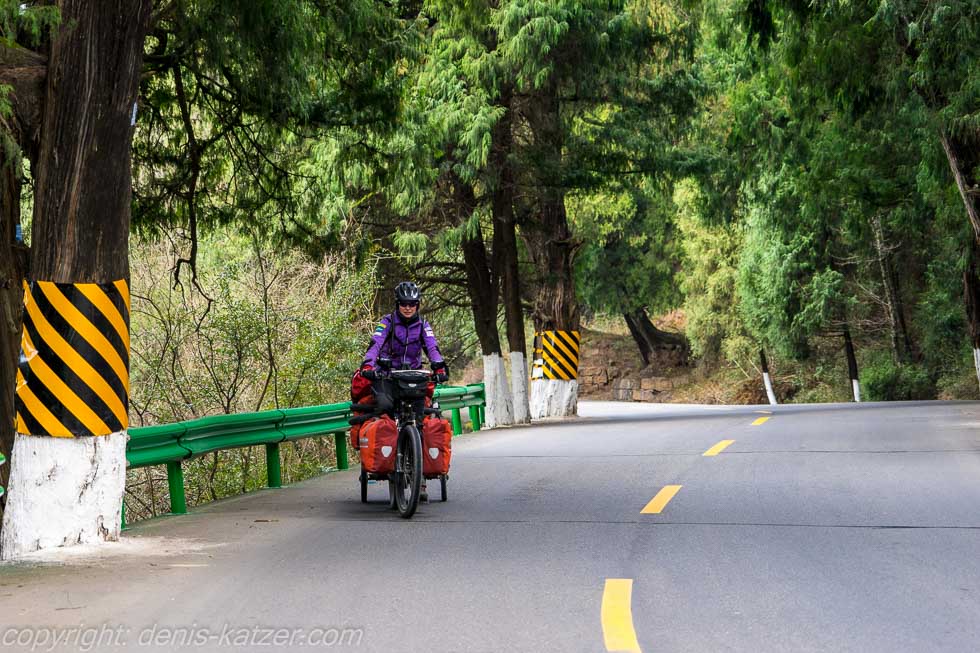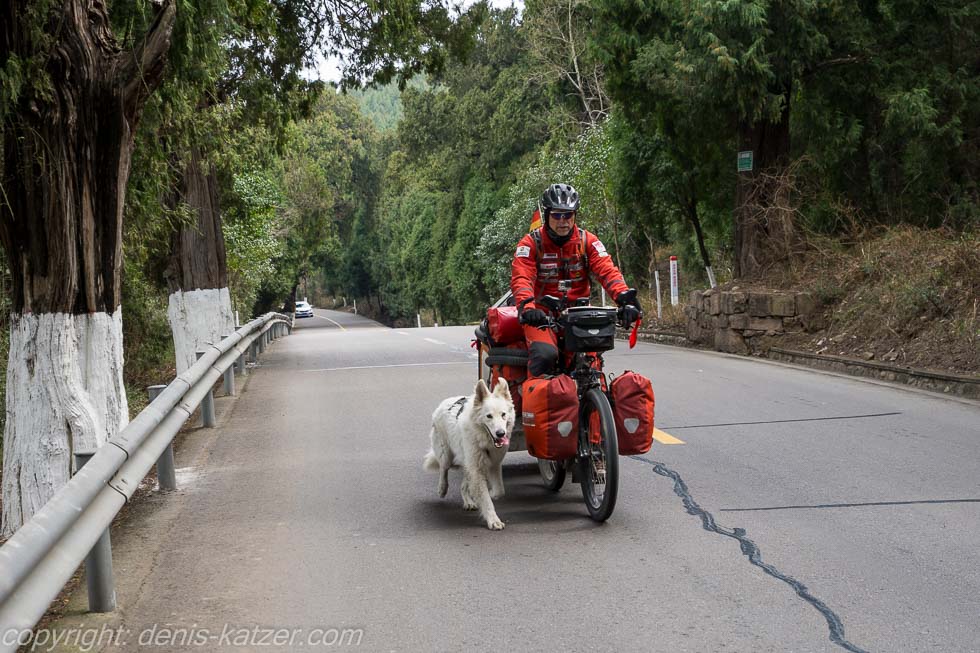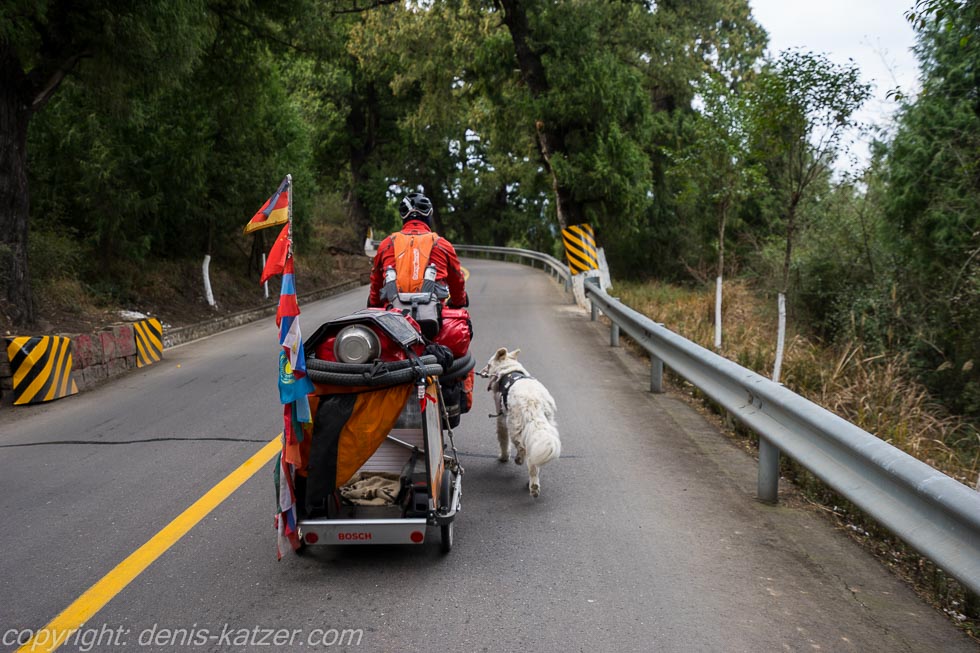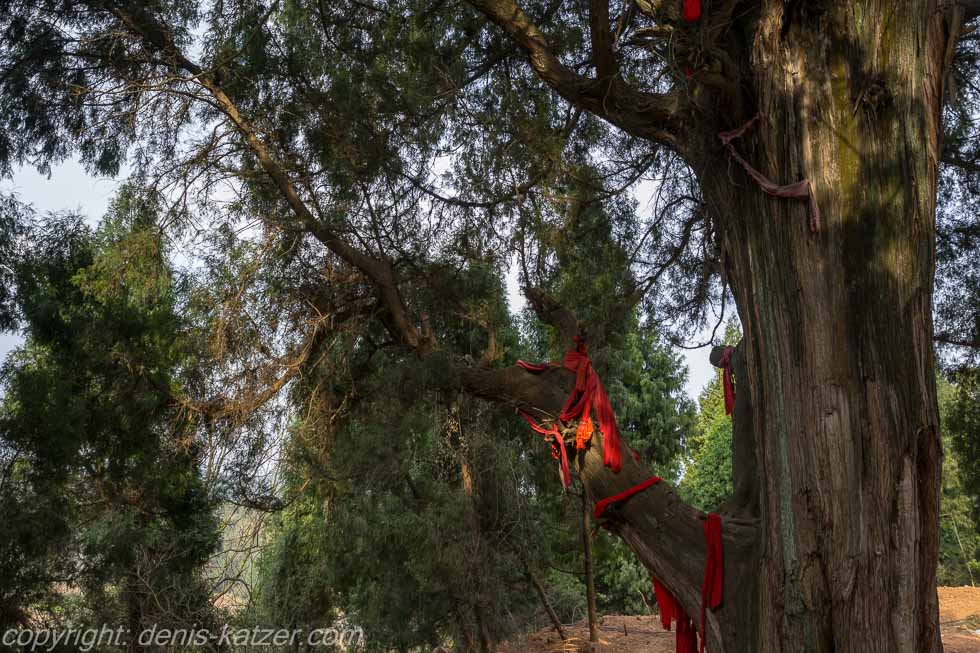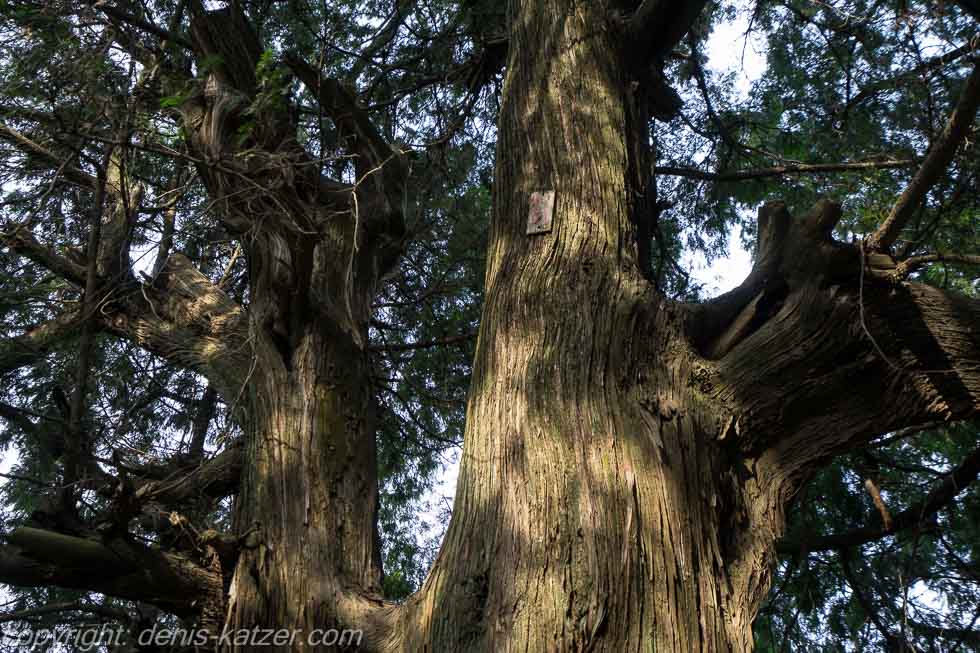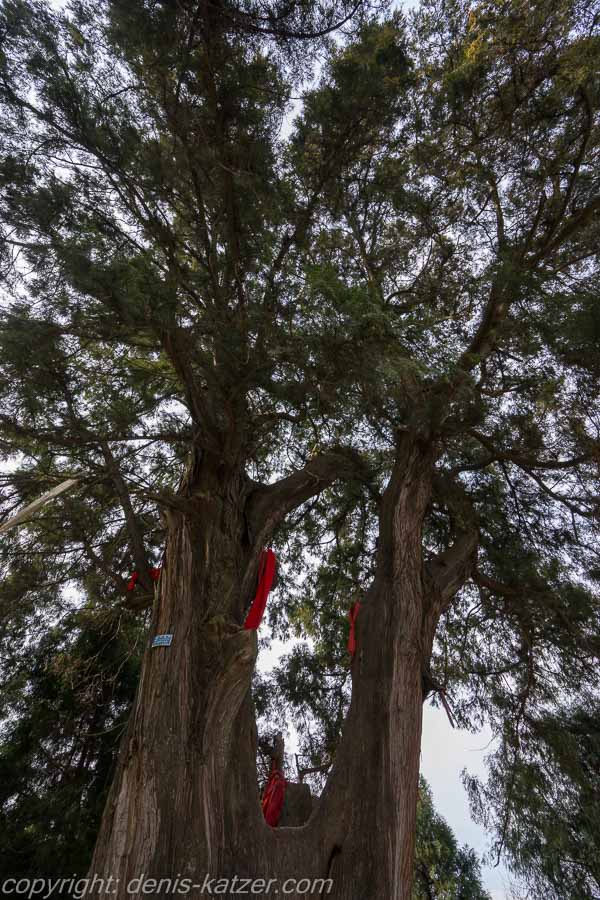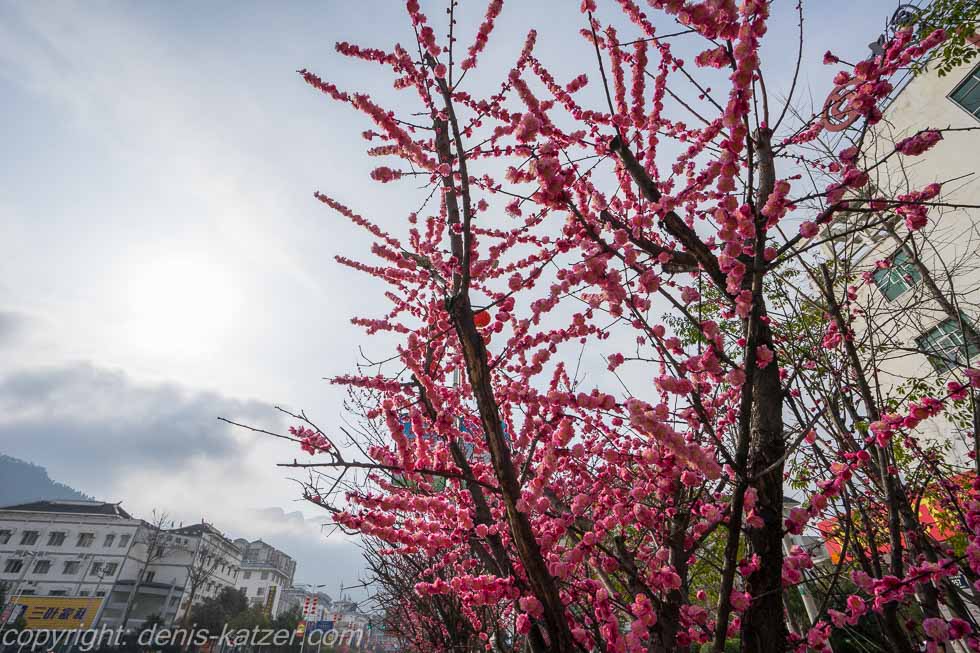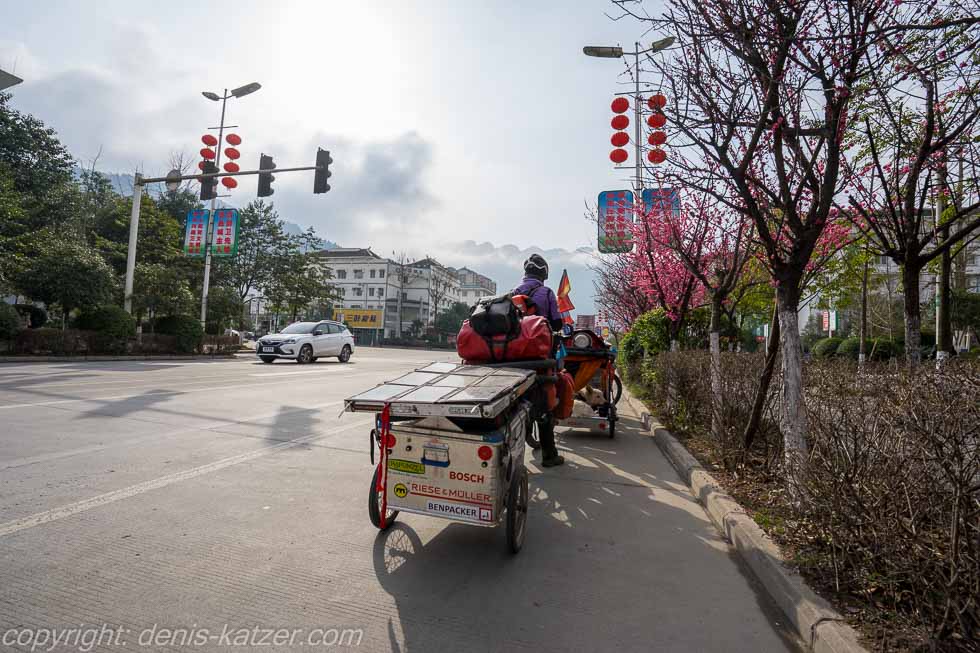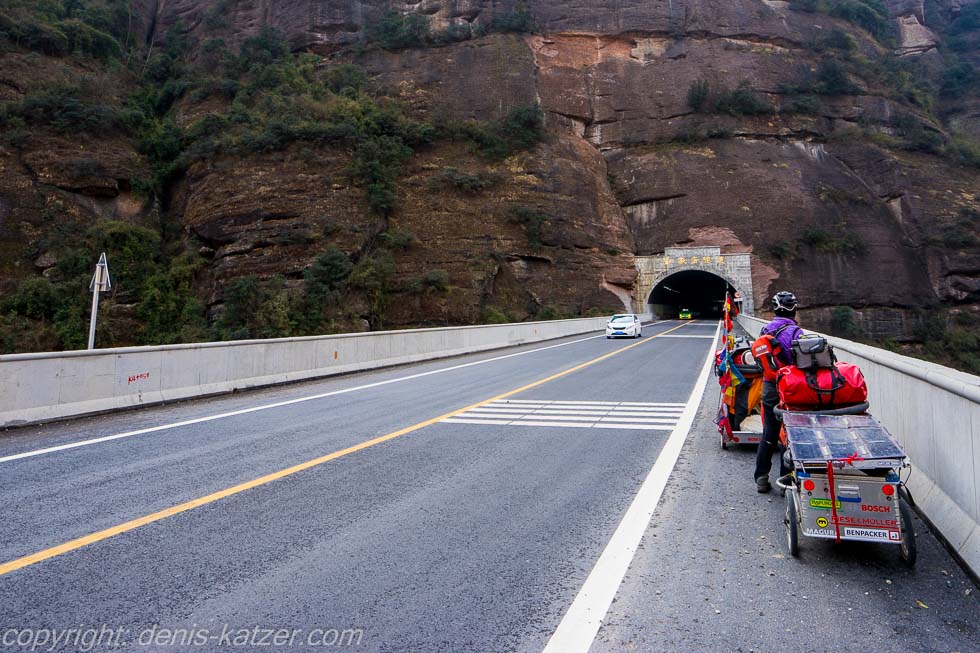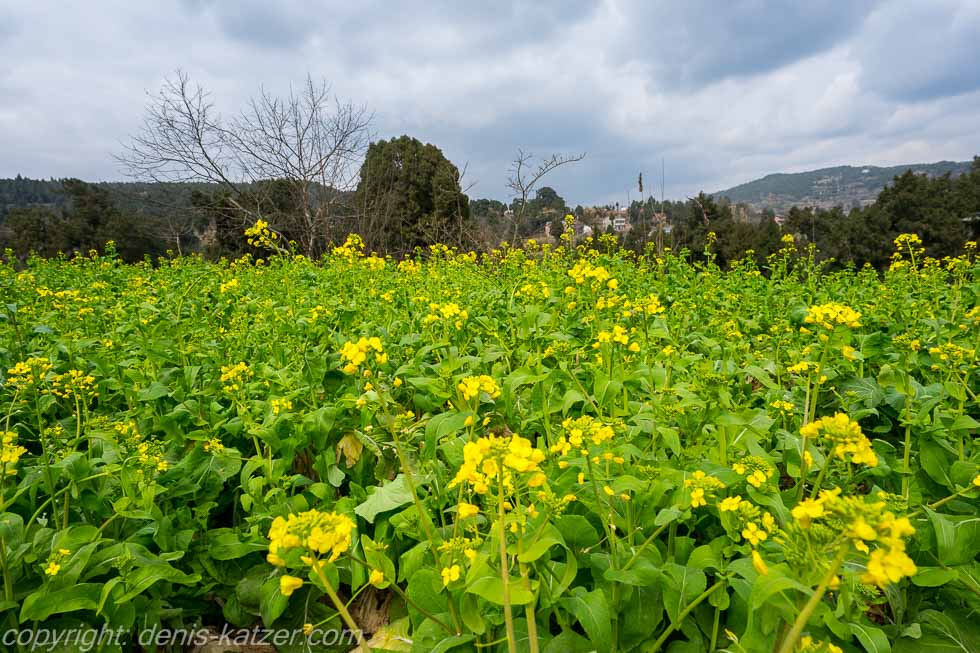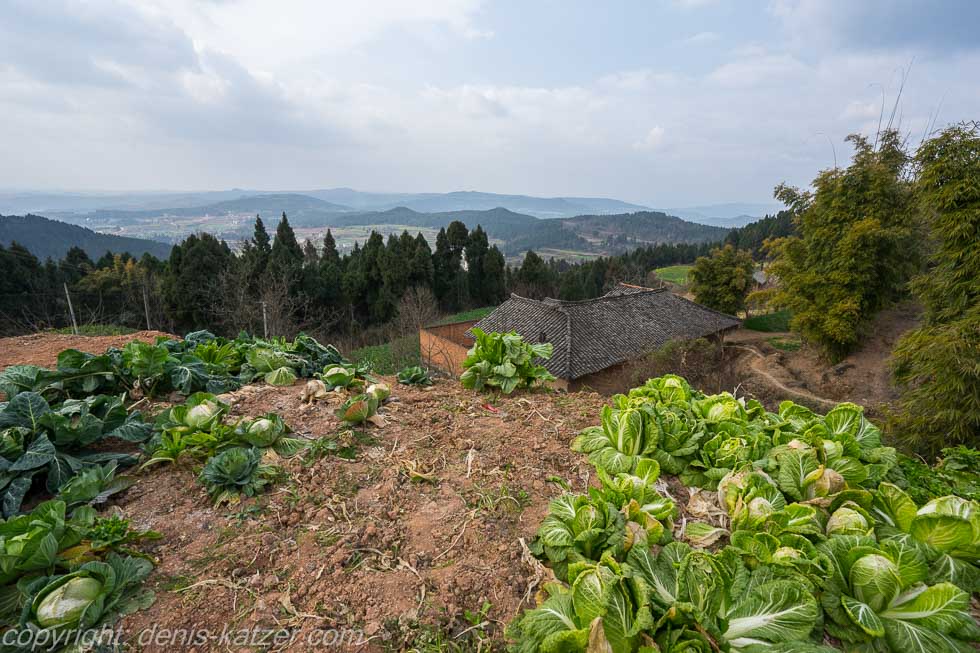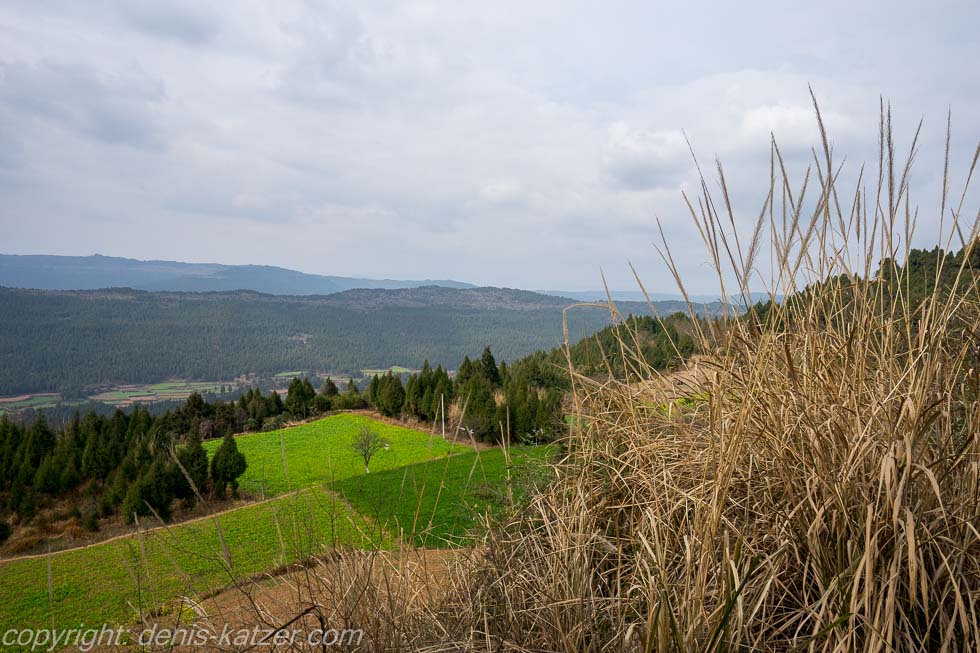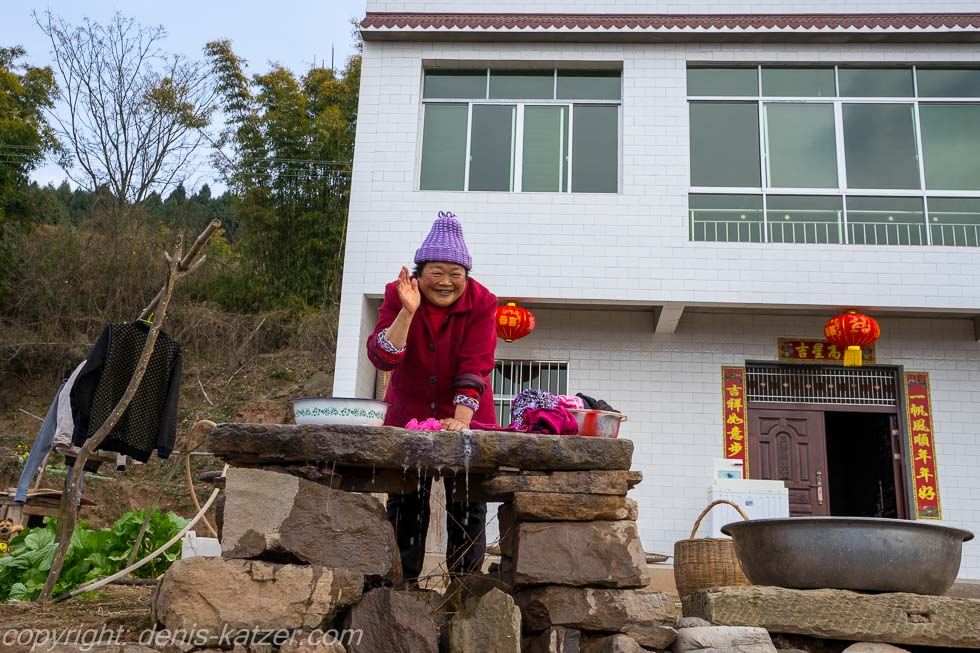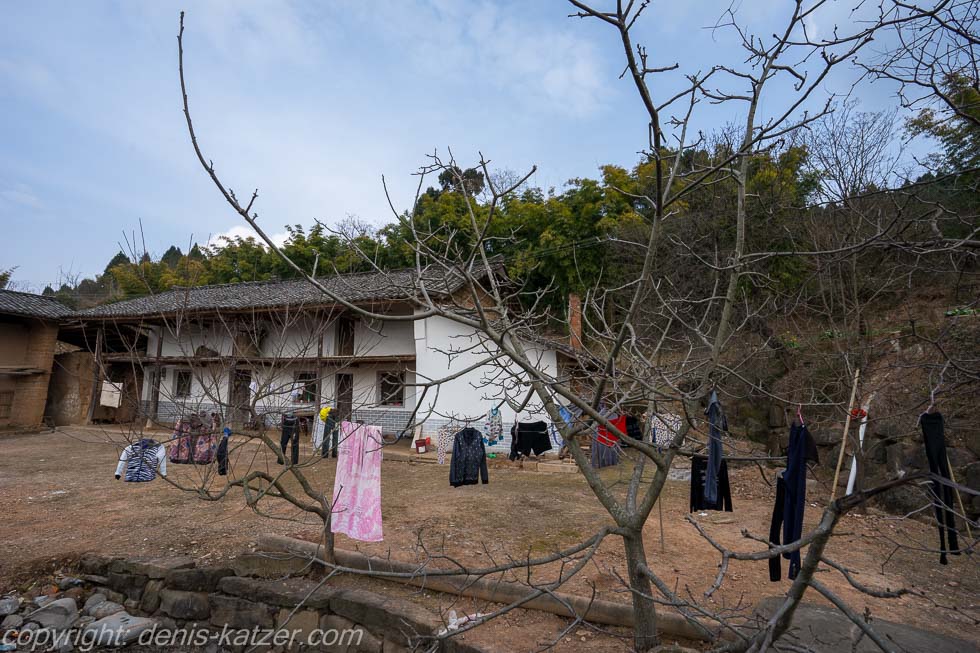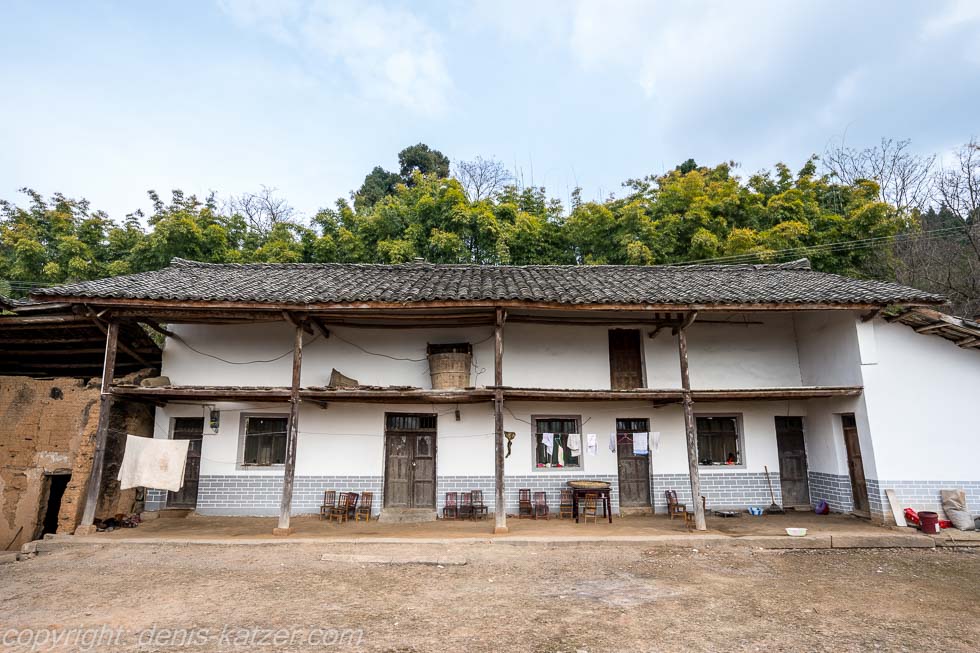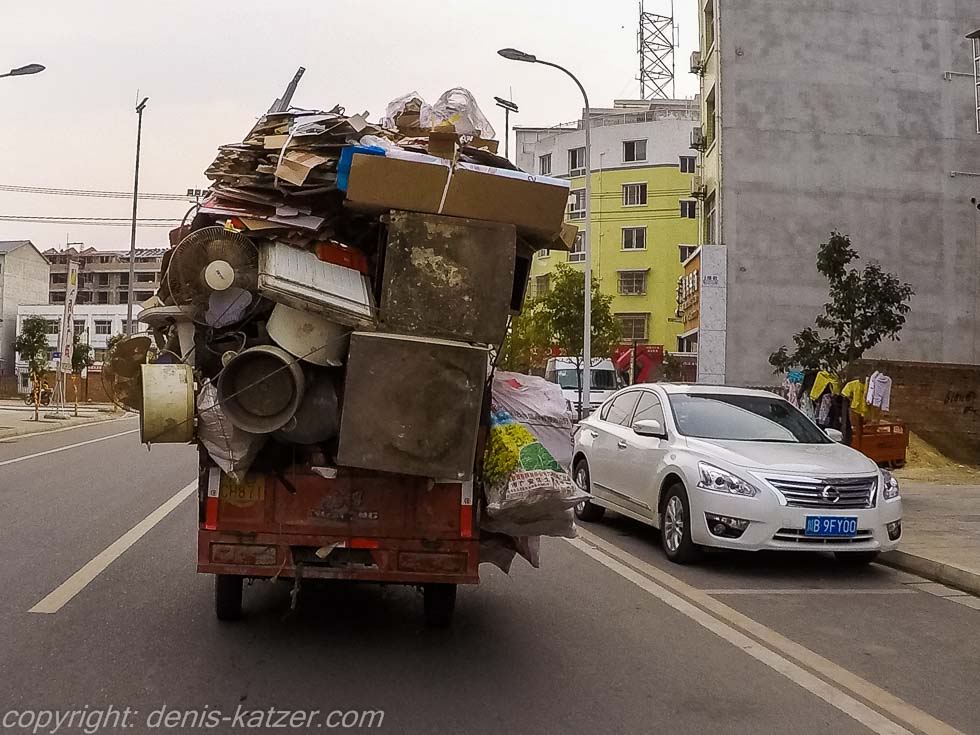
First signs of spring
N 31°37'47.1'' E 105°09'41.8''
Date:
25.02.2016
Day: 241
Country:
China
Province:
Sichuan
Location:
Zotong
Latitude N:
31°37’47.1”
Longitude E:
105°09’41.8”
Daily kilometers:
124 km
Total kilometers:
12,653 km
As the crow flies:
95.24 km
Average speed:
20.2 km/h
Maximum speed:
57.0 km/h
Travel time:
6:05 hrs.
Soil condition:
Asphalt
Maximum height:
830 m
Total altitude meters:
24.502 m
Altitude meters for the day:
1.710 m
Sunrise:
07:32 am
Sunset:
6:52 pm
Temperature day max:
9°C
Temperature day min:
7°C
Departure:
09:30 a.m.
Arrival time:
5:45 pm
(Photos of the diary entry can be found at the end of the text).
Shortly after we set off today, we get stuck in a traffic jam. Fortunately, we are able to weave our way past the cars and trucks on our bikes. After two kilometers we reach the cause of the traffic jam. A rickshaw lies in the ditch. The driver stands by with bleeding shins. Apparently, like so many drivers, he drove his vehicle on the wrong side of the road and collided with an oncoming car. The heavy traffic squeezes past the injured man. No one seems to stop to help him.
20 km later, Mother Earth presents us with a breathtakingly beautiful and varied mountain landscape. The low-traffic road winds through an ancient cypress forest, which apparently survived the “Great Leap Forward” campaign (1958 to 1961) initiated by Mao Zedong unscathed. During this time, the aim was to catch up with Russia, Europe and America by increasing steel production. Countless small furnaces were built in the countryside for farmers to produce steel. These kilns were also fired with wood, among other things. The consequence of this was the sustained destruction of native forests. In the end, completely unusable steel was produced. One in four Chinese are said to have been involved in the production. According to Mao’s own statements, he had sent 90 million people into the steel battle against the West in order to catapult China forward economically. Ultimately, tying workers to steel production put the country’s entire harvest at risk. This triggered one of the greatest famines in human history. During this terrible time, the rural population tried to survive on traditional emergency foodstuffs such as tree bark, leaves, grass and wild herbs. However, the greater the need became, the more deaths were concealed in the family. The reason for this was to obtain the food rations necessary for survival. More and more women were prostituting themselves for food. Children were abandoned or sold. Cannibalism is reported from the severely affected regions. In total, between 15 and 45 million people starved to death in China between 1959 and 1961.
Although the cypress forest is fabulously beautiful, I can’t stop thinking about that terrible time. Fortunately, it is over and today’s population has enough to eat. Unfortunately, today’s economic growth is at the expense of the environment. We have seen the consequences of the destruction almost every day on our route through the country so far. I shake my head to get back to better thoughts, to be able to enjoy the beauty that surrounds us on this day. “Let’s stop!” calls Tanja. I pull the brakes, put my bike on the side stand and inhale the clear mountain air. My thoughts fly away and only now can I fully enjoy the cypress forest that stretches as far as the eye can see across the mountain slopes.
After fortifying ourselves with almonds, dates and dried bananas, we get back on our saddles. You are rewarded with an eternally long descent past small, idyllic-looking mountain villages. The farmers up here harvest their crunchy green lettuce as early as mid-February. We have been seeing the first lush green-looking meadows for six months. Our eyes feast on yellow blossoming rapeseed fields, from whose seeds rapeseed oil is extracted by rolling or pressing. A farmer’s wife, who is still washing the laundry and rolling it on a stone as she did centuries ago, gives us a friendly wave. Chickens, sheep, goats and oxen still roam free here. In a small town, flowering Madel trees line the streets to the left and right. Because there are always trees in China with artificial flowers on them, we can hardly believe our eyes and touch the blossoms. “They’re real,” I say happily. A car overtakes us and stops directly in front of us, forcing us to brake. The doors burst open, a man jumps out, comes towards me, puts his arm around me while his friend takes photos of us with his smartphone. “Xie xie,” he thanks me and gets back into the car as it speeds away. We cross many tunnels, climb 1,710 meters in altitude on this day and reach the city of Zytong after 124 km, from which it is now only 170 km to Chengdu and we have a very good chance of reaching it in time…
We have been committed to preserving our forests for years. For us, this is one of the most important tasks as ambassadors of Mother Earth, because our journey through life is also a bridge between us humans and nature, with which we are inseparably connected. With the “Green Vein” we want to make a contribution to preserving the diversity and beauty of nature. Together with the Bergwaldprojekt e.V., we are committed to the habitat of the European wildcat in the Spessart Nature Park. We would be delighted if you could help us to preserve our local forests.
Thank you so much!!!
100 percent of every donation goes to the mountain forest project
Donation account
Bergwaldprojekt e.V.
Keyword: Green vein
GLS Community Bank
Account number 8022 916 200
SORT CODE 430 609 67
IBAN DE87430609678022916200
BIC GENODEM1GLS
For every donation worth EUR 5, we finance a tree seedling, which is planted by the Bergwaldprojekt e.V. with volunteers in the Spessart. Anyone who wants to can also take part in the project weeks themselves. Registration at www.bergwaldprojekt.de
You can find more information about our tree planting project here:

If you would like to find out more about our adventures, you can find our books under this link.
The live coverage is supported by the companies Gesat GmbH: www.gesat.com and roda computer GmbH http://roda-computer.com/ The satellite telephone Explorer 300 from Gesat and the rugged notebook Pegasus RP9 from Roda are the pillars of the transmission.
